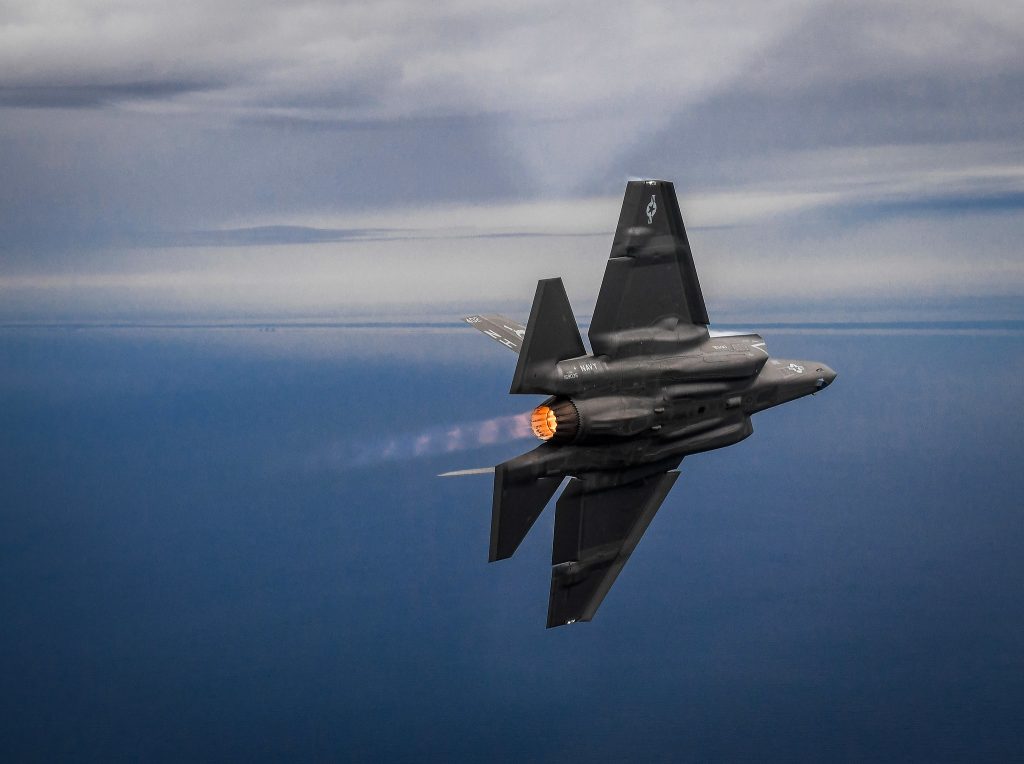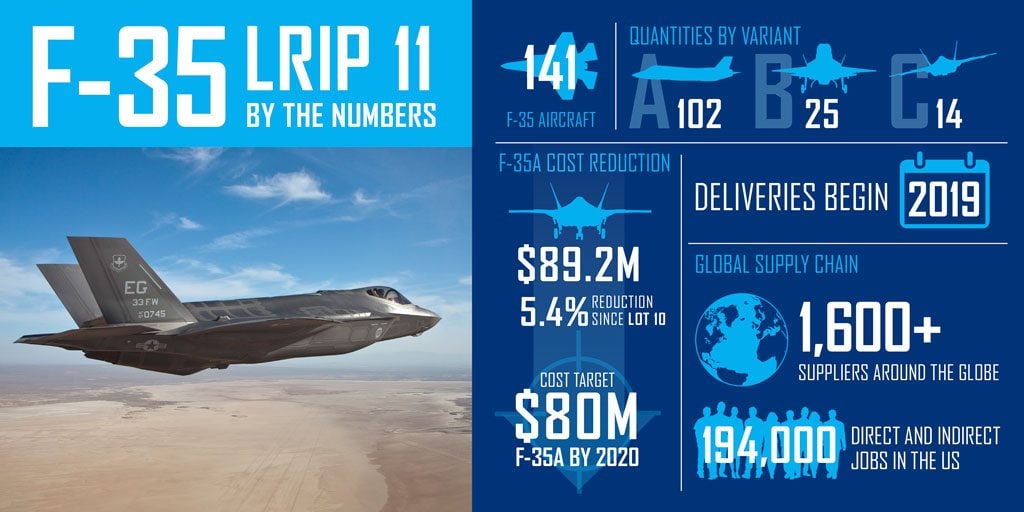Ellen Lord: Lot 12 Contract For F-35s Soon
Posted on

An F-35C Lightning II flies over Eglin Air Force Base in February.
PENTAGON: The US will soon sign a new contract to acquire more F-35s, even as it scans the globe for alternate suppliers for parts currently being made in Turkey in the event the NATO ally is removed from the program .
“We would like to have a contract award in the June/July time frame,” Ellen Lord, the Pentagon’s chief acquisition official, told reporters Friday. That means it may well come in time for the Paris Air Show, held in the third week of June. The contract would be for Lot 12, following September’s $11.5 billion Lot 11 deal for 141 aircraft.
Under that deal, the price per F-35A aircraft fell to $89 million, and Lord said she expects costs to continue to slide for the next Low Rate of Initial Production (LRIP) lot.

There has been some talk about the Pentagon issuing multi-year contracts for future lots of the stealthy aircraft, including lots 15 tough 17, but Lord refused to offer predictions for the future of the program. “I’m not sure I would call it a goal,” to enter into multi-year contracts, she said. “It’s under consideration. There are questions about the benefits of doing that as well as the negatives of doing that [but] any decision I make will be a data-driven decision.”
A total of 14 countries participate in the F-35 program, but only one — Turkey — is in danger of being booted from the pack. The tension between Ankara and the rest of NATO only continues to grow the closer the country gets to purchasing the Russian S-400 air defense system, which the US and NATO has said would force them to exclude Turkey from the F-35 team.

Ellen M. Lord, during a ceremony at the Pentagon.
That’s a problem not only for the segment of the F-35 industrial base that resides in Turkey, but also because taking the 100 F-35A aircraft Turkey plans to purchase out of the mix would likely increase unit costs for other customers. Overall, Turkish companies are expected to perform about $12 billion worth of work on the aircraft in the coming years.
Last month, the Pentagon confirmed that it had stopped F-35 parts shipments to Turkey in retaliation for the impending S-400 deal.
Around the same time, F-35 program manager Vice Adm. Mathias Winter told lawmakers on Capitol Hill that removing Turkey from the program would have a “50- and 75-airplane impact over a two-year period.”
That hit to production comes from the 6 percent to 7 percent of the aircraft’s parts that are made in Turkey, Winter said, and “we would see within 45 to 90 days an impact of the slowing down or stopping of those parts to the three production lines.”
Without divulging any specific numbers, Lord on Friday said “we see a potential slowing down of some deliveries over the next two years, some potential cost impacts, but right now we believe we can minimize both of those and are working on refining them.”
The aircraft is facing other issues, including suffering a shortage of hundreds of spare parts each month, causing production line slowdowns and cost increases. Appearing on Capitol Hill again earlier this month, Winter said he was “hitting a stagnant plateau with Lockheed Martin because they are 600 parts a month behind on average — 600 parts not on the production line when I need them.” Now that more than 400 of the aircraft are deployed, Winter said he needs parts “to fix the airplanes” out populating air wings.
Subscribe to our newsletter
Promotions, new products and sales. Directly to your inbox.
